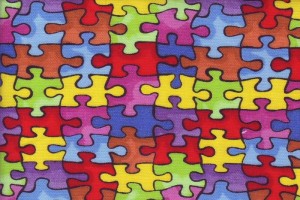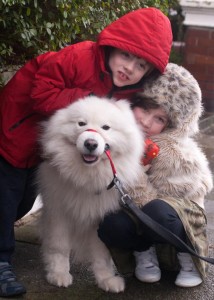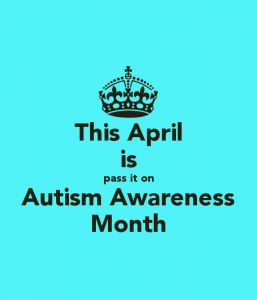
Advice for autism parents
When I started this blog a few years back I wrote a blog post describing our son’s autism diagnosis. You can read the story here.
In the five years which have passed so much has changed. Not always for the better.
But I still vividly recall the day of the diagnosis and the pain it caused. In fact it was the 70th anniversary of the German invasion of Poland if your interested. We got the diagnosis at around 11.30 in the morning. Again if you are interested.
My initial reaction was a bit of a surprise to me. Both my wife and I had expected it. In fact. looking back. I don’t suppose there was any other possible outcome. But hope springs eternal – as they say.
After the first few moments of bleak sadness my next reaction was anger. Not just at the way we were told. Though pretty inept I doubt it would have made a difference. It was as much the unfairness of it all. Why? Because in those days I really thought my son’s life was over before it had begun.
But it’s not. Not at all. Yes it is different sure and not always easy but we lead a full family life and John has developed in many ways.
But I still think about that day and wondered how typical I am.
So a couple of days ago I posted a question on our Facebook Page AutismTalk. The results were fascinating and I thought I would share some of them with you. The ones I’ve selected have been on the basis of being representative rather than anything else. Indeed at time of writing this post we have had over 320 comments.
It would be great if you would use the comments section below.
Jason was pretty relaxed “It wasn’t a big deal to me. I still love my daughter if she was autistic or not. Even though she is classified as special needs….i don’t see her that way. She is just Julie..my daughter…no more…no less. The world is a her doorstep!”
Another reader was similar to me “Broken.. Cried.. Blame my self… But he is still my little boy… And I’m proud of him.. Very proud of him….” said Silvia.
Angela shared ” Firstly it was relief…..not because my son has asd but because at least we had finally got some where and I knew I wasn’t going mad,….i had known from an early age that my son was autistic it has just taken a while to get anyone to listen…….but then the feelings of guilt,I couldn’t help feeling that it was my fault somehow….i still do get those feelings sometimes , but at least we can now fight for my son to get the correct help he needs…..i love my son with all my heart and wouldn’t change him for anything.”
” I held it together until I got in the car. Then quietly cried the hour drive home. My husband drove us in silence. We spent that day grieving normal, the loss of what we thought things should be like for our boy…only just 3 then. The next day we woke up ready to embrace everything with a positive and easy going attitude. We threw all expectations out the window. We accepted this challenge. We got educated, we embraced therapies, learned how to step inside him. Jonathan’s now 11. Doing great. He’s a happy, warm, loving, and brilliant boy. My gem ” said another reader.
Robert mentioned “Relief in the fact that I could tell family to back off that it wasn’t a discipline issues.”
Of course emotions are strong “I cried for like 2 hours in my car after my wife my son got back home . We went to the doc they told us she cried on the way home I ask God for stenght not to cry and be strong for her after we got home I told I had to return to work I got in my car and broke down and cried . I love my boy it more then 10 years for us to get pregnant . I never asked God why or have any bad feelings what I did tell God is that ok I love my boy and accept me with all my heart just please don’t let my do this on my own help me with your love if you do this with me I know I can see anything through . It been good my wife and are more like a team now with share all my son things therapies , doc visits were never alone on anything . There are the bad days really bad day but that’s why we’re a team if she feels she needs a brake or can’t go I’m like tag me I’m in ? But there are good day to and we both share them . He’s my boy ” I love you carlosmanuel I won’t change you for anything ”
Glorie told us “Relief in the fact that I could tell family to back off that it wasn’t a discipline issues.”
Not everyone was positive “Sad. Confused. Frustrated. Lost. Hopeless. I didn’t cry, I just developed severe anxiety and depression. I’m pretty sure I have no clue what I’m doing. God help us all.”
Pauline movingly said “pride and love and knowing i was right a mother knows her child best xxxx” and another said “My husband and I sat in our car in shock and said that no one would just slap a label on our son..we expected the same for him as our other son. We had to make adjustments over the years, it was not always easy, but he is now 21 and is an amazing young man.”
The view from people with ASD was interesting. Katheryn shares “Finally I have a reason why I was different and that I’m not alone ”
Anna was upbeat “My son and I heard the news together. He was not diagnosed (with Aspergers) until he was 17. We both looked at each other with that sudden dawning of understanding. Suddenly we knew the reason for all our struggles. We hugged and talked well into the night. And had many conversations about all of it.”
So what about you? What was your reaction?




